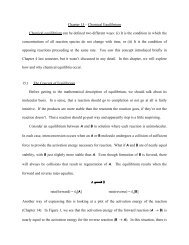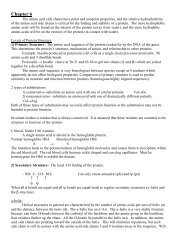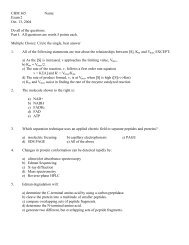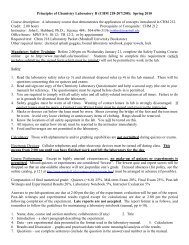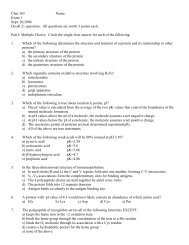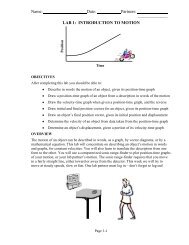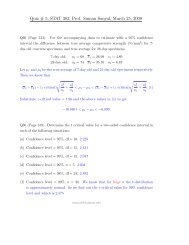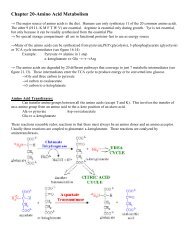THE DHAMMAPADA: THE WAY OF THE BUDDHA, VOL. 9-12 The ...
THE DHAMMAPADA: THE WAY OF THE BUDDHA, VOL. 9-12 The ...
THE DHAMMAPADA: THE WAY OF THE BUDDHA, VOL. 9-12 The ...
You also want an ePaper? Increase the reach of your titles
YUMPU automatically turns print PDFs into web optimized ePapers that Google loves.
308 <strong>THE</strong> <strong>DHAMMAPADA</strong>: <strong>THE</strong> <strong>WAY</strong> <strong>OF</strong> <strong>THE</strong> <strong>BUDDHA</strong>, <strong>VOL</strong>. 9-<strong>12</strong><br />
This is the first category: the grihastha, the householder.<br />
And the second category is of those who have renounced the first category, who have moved to the other extreme<br />
who don’t live in houses, who don’t live in families, who don’t earn money, who don’t even touch money, who<br />
have moved to exactly the opposite extreme. <strong>The</strong>y are known as sannyasins. <strong>The</strong>y used to wander around the<br />
country in small or big groups.<br />
Jaina monks are not allowed to move alone. In Buddha’s time there were thousands of Jaina monks because<br />
Jainism had existed for at least three thousand years before Buddha. Thousands of Jaina monks they are not<br />
allowed to move alone, they have to move in a group of at least five, for the simple reason that a person moving<br />
alone cannot be trusted. He may fall into some error and, knowing that nobody is with him, nobody knows, he<br />
may drink wine somewhere or he may fall in love with a woman or he may go and visit a prostitute or he may do<br />
something.... But moving with four others it is impossible; the other four are constantly watching.<br />
So that was a strategy to prevent anybody getting any kind of freedom, any kind of license a psychological<br />
strategy. Unless all the five decide to conspire together... and that is very difficult, that is almost impossible.<br />
Sinners are known to become friendly to each other, saints are not known to become friendly to each other. <strong>The</strong>y<br />
don’t know what friendship is, they can’t conspire. <strong>The</strong>y will watch, they will try to find every kind of fault in<br />
the other and they will report to the master. And Hindu monks used to move even now they do the same in big<br />
groups of hundreds.<br />
Buddha says: You have dropped a small family and now you have moved into a bigger crowd you have become<br />
another family. Nothing has changed. First you were thinking that was your security, now you think this is your<br />
security, but the old idea of security still persists.<br />
He says that to be a sannyasin means to accept the natural insecurity of life. That very acceptance is sannyas<br />
to accept that, ”I am born alone and I will die alone, and between these two alonenesses all ideas of being together<br />
with somebody are just fantasies. I am alone even while I am alive.” One is born alone, one lives alone, one dies<br />
alone.<br />
Buddha’s emphasis is very much on the fact of your aloneness; he wants you to be aware of it. Once you are<br />
aware of it you will be surprised at the beauty of it, at the joy of it. You will not be scared; you will rejoice in it<br />
because it has a freedom, it has an ecstasy in it, it has a purity and innocence in it. And why hanker for security?<br />
Life is insecure in its very nature, hence it is simple logic: those who want to be more alive, they have to live in<br />
insecurity. <strong>The</strong> greater the insecurity, the more will be your aliveness; the greater the fallacious, so-called security,<br />
the less will be your aliveness.<br />
That’s why you see so many dead people in the world, almost dead, for the simple reason that they have become<br />
so much attached to the idea of security. And the more dead you are, the more secure you are. Don’t do anything<br />
that can create any insecurity, remain confined to the familiar, don’t ever go beyond the limits. You will never<br />
know the ecstasy of going beyond the limits. You will never know the ecstasy of exploring the unknown and the<br />
unknowable.<br />
According to Buddha, both categories are the same people. Of course they are extremists and they appear<br />
opposite to each other, but don’t be deceived. <strong>The</strong>y are not really opposite; they have found different kinds of<br />
security.<br />
A Jaina monk wrote to me that he would like to come here. He has been reading my books and he wants to<br />
become my sannyasin, but he is afraid he will lose all his security because now the Jaina community protects him,<br />
feeds him, takes every care of him, respects him. Once he leaves the monkhood, the Jaina community won’t be<br />
protecting him anymore.<br />
He asked me whether I am ready to take his life in my hands, whether I will be his security. Now he wants to<br />
change from one security to another security, he cannot take a jump into insecurity. And my sannyas is insecurity.<br />
Real sannyas is always insecurity because real life is insecurity. <strong>The</strong>re is a great security in being insecure. In<br />
dropping the very idea of security you are secure with the whole, with God, with the total. And there is great<br />
excitement then, because each moment you don’t know what is going to happen.<br />
Buddha says that the master... DOES NOT LINGER WITH THOSE WHO HAVE A HOME. He does not<br />
linger with the first category, the people who are obsessed with money, power and prestige. He does not waste his<br />
time with these people, he does not linger with these insane people.<br />
And he says: ... NOR WITH THOSE WHO STRAY nor with those who go on roaming around the country<br />
in groups because that is another kind of security, a subtler kind, but the mind is the same. One wants to belong,<br />
one can’t be alone.<br />
He says: WANTING NOTHING, HE TRAVELS ON ALONE because the real master has no desire, not even<br />
desire for life; hence he is not afraid of death. He has no desire in this world or in the other; hence he is not



